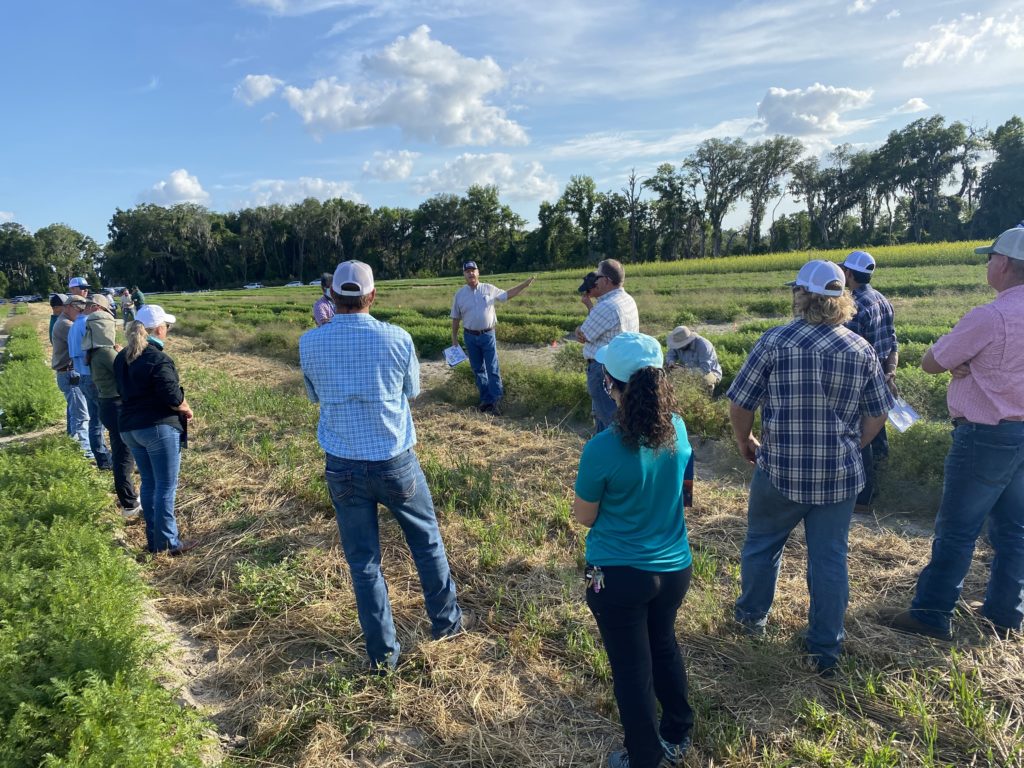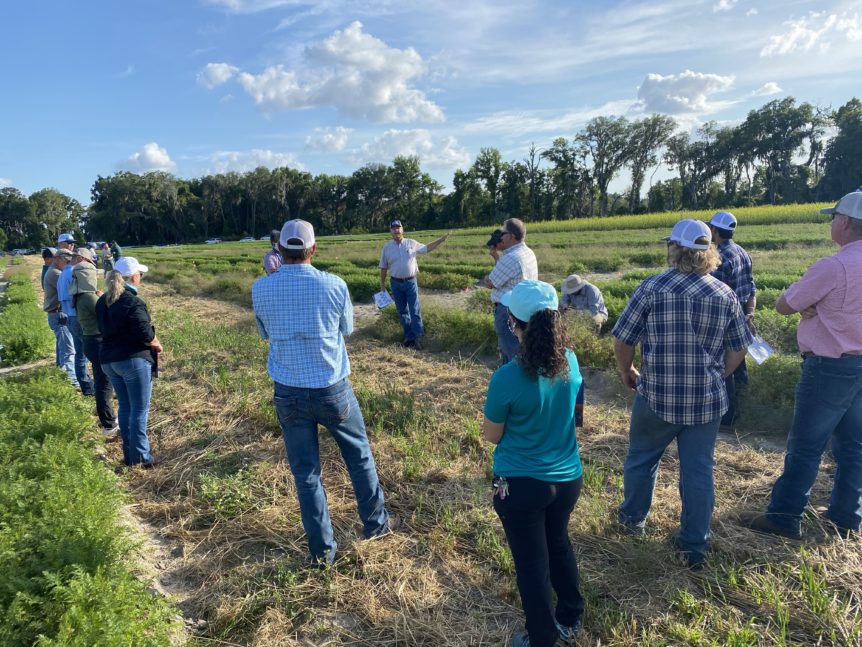Billie Rooney and her husband, Scott, operate a 40-acre farm near Live Oak, Florida, where they grow blueberries, blackberries and sunflowers and raise livestock.

Farming is a second career for the Rooneys. So, they had a lot to learn.
She and hundreds of other farmers and ranchers across Florida can attest to the importance of lessons learned from any of the 150 or so annual field days hosted by the University of Florida Institute of Food and Agricultural Sciences (UF/IFAS).
“We went from nothing to having a successful operation,” Billie Rooney said of what she learned at educational sessions at the North Florida Research and Education Center-Suwannee Valley (NFREC-SV).
Field Days Importance
At field days, agricultural producers — large and small, beginners to veterans — can learn about topics that can increase their yields and preserve the environment. They receive updates on the latest varieties of crops and forages along with how to manage heat, climate change, pests and diseases. Farmers take knowledge back to their operations and put it to work.
Usually, stakeholders go to research and education centers and other UF/IFAS sites from the Panhandle to South Florida, but sometimes UF/IFAS takes its science-based information to producers.
UF/IFAS offers a wide range of learning opportunities at field days across the state. Held primarily for growers, topics include cattle, forage, citrus, watermelons, grapes, peanuts and much more.
“The success of these field days is due to collaborative efforts of Extension agents and specialists,” said Saqib Mukhtar, UF/IFAS associate dean of Extension for agriculture and natural resources. “Stakeholders’ input and local needs assessment contribute to the hands-on learning opportunities at these UF/IFAS educational events.”
Time for Research
Field days are typically done to show research or demonstrations being conducted by UF/IFAS faculty or staff, said Bob Hochmuth, assistant director of NFREC-SV.
“We show research projects in the field or greenhouses,” Hochmuth said. “We often also use them as training opportunities. Field days may be conducted at a research and education center (REC); however, we offer many on farms where we are conducting research or demonstration projects.”
“The information is usually new, cutting edge and not readily available yet,” Hochmuth said. “So, it increases their knowledge, not only by hearing or reading about it, but actually seeing it. And seeing it live is believing in most cases and is known to be a great way to learn.”
Like the Rooneys, Kim Jones, owner of Florida Georgia Citrus in Jefferson County, learns a lot at field days.
Among the many take-home lessons for Jones are proper handling of fruit, appropriate use of chemicals, nutritional needs for citrus and pest identification. He also appreciates the new citrus handbook available at field days.
“I’m always trying to learn more about growing citrus,” said Jones, who’s been growing cold-hardy citrus for a decade. “I find out about food safety issues; I network with other growers and share what we know.”
“I’ve learned information at field days that has helped me make better management decisions,” he said. “That ranges from nutrient rates to chemicals that works best.”










